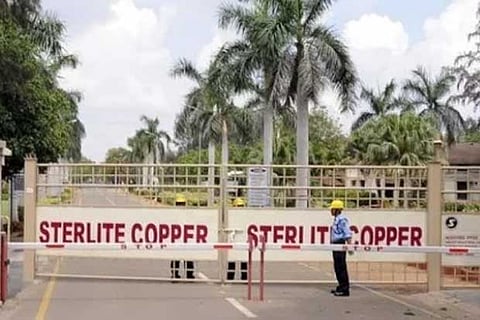

Chennai
The group pointed out that Vedanta’s consultant National Environmental Engineering Research Institute (NEERI) had grossly under-reported arsenic emissions as 8 kg/ day in a 2005 audit report by assuming arsenic content in the input copper concentrate ore to be 0.0579%. However, a look into Sterlite’s import documents revealed that the copper concrete shipments imported by the company between 2009-2010, contained arsenic concentration of 0.12%0.64%. For purchasing the low-grade ore concentrate, Sterlite was given a discount of Rs 4.8 crore.
The price of this discount is being paid by the residents of Thoothukudi, said the Chennai Solidarity Group. “Such high rates of arsenic emissions along with sub-standard pollution mitigation infrastructure – such as inadequate greenbelt and shorter-than-required chimney stacks — are likely to have resulted in intense toxic exposure to populations living in the vicinity of the smelter,” said a statement.
According to a scientific opinion prepared by Dr T Swaminathan, a retired Professor of Chemical Engineering from IIT-Madras, the emissions from the short chimney stacks attached to Sterlite’s sulphuric acid plants will result in a ground level concentration of 125 micrograms/ m3 of sulphur dioxide at 1.6 km from the plant, affecting villages like T Veerapandiapuram, Meelavittan and Pandarampatti.
The company was lambasted for obtaining its Environmental Clearance in 2007 for the existing 400,000 tonne per annum smelter complex through false representations, claiming that it has the required 172.17 hectares of land. However, the company has only 102.31 hectares – far less than what it claimed to have while applying for environmental licenses.
Notice to Centre, state in false claims case
The Madurai Bench of Madras High Court on Monday sent notices to the Centre and state government agencies seeking explanation over alleged misrepresentation of facts by the Vedanta Group of Sterlite Copper Unit in Thoothukudi. A writ petition filed by A Prince Cardoza (56), a resident of Thoothukudi, has sought to quash the environmental clearance granted to Sterlite Copper unit in 2007. The petitioner argued that the environmental clearance was obtained by the copper smelter plant by making a false representation that it had adequate land of 172.17 hectares with solid waste storage and other environmental protection infrastructure. But, the unit had only 102.3 hectares against the representation of 172.17 hectares.
On hearing the petition, a Division Bench of Justices CT Selvam and R Dharani directed notices to The Ministry of Environment, Forests and Climate Change, New Delhi, Tamil Nadu Pollution Control Board and Commissioner of Customs, Tuticorin Custom House, seeking their explanation and posted the case to further hearing until two weeks.
Thoothukudi groundwater contaminated, admits Centre
A study by a central agency in the area around the Sterlite Copper plant has indicated groundwater contamination with heavy metals beyond permissible limits, the Centre said on Monday. “The Central Ground Water Board has carried out a study to ascertain the groundwater quality in and around (the) SIPCOT industrial area, Thoothukudi (wherein M/s Sterlite industry is one of the industry),” Arjun Ram Meghwal, Union Minister of State for Water Resources, said in a written reply to a question in the Rajya Sabha.
“The study indicates that most of the groundwater samples are contaminated with high Total Dissolved Solids (TDS) and heavy metals like, cadmium, chromium, manganese, iron and arsenic, which are beyond (the) permissible limit,” Meghwal added. The Union Minister said according to the information from the Central Pollution Control Board, the analysis of groundwater samples from the Sterlite industrial unit by the Tamil Nadu Pollution Control Board shows the presence of iron, fluoride, cadmium and nickel more than the permissible limit.
Visit news.dtnext.in to explore our interactive epaper!
Download the DT Next app for more exciting features!
Click here for iOS
Click here for Android